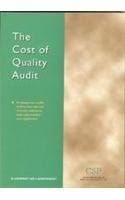Question
Please create a journal entry (including closing) for the information below Assuming AG is in the second year of operations in 2021, AG had beginning
Please create a journal entry (including closing) for the information below
Assuming AG is in the second year of operations in 2021, AG had beginning balance sheet account balances of: Cash $1,000,000; A/R $100,000; Allowance for doubtful accounts $10,000 (credit balance); Common stock $400,000; APIC $600,000; and retained earnings of $90,000. Assume all other accounts have zero balances.
AG purchased inventory on credit throughout the year: On 2/1 - 10,000 units at $30/unit; On 6/1 - 10,000 units at $20/unit; On 12/1 20,000 units at $25/unit. AG uses FIFO perpetual method and incorporates lower of cost or market in determining ending inventory. Assume the Market Value (NRV) of ending inventory is $65,000.
AG made the following sales on credit: On 2/25, AG sold 6,000 units for $60/unit. On 8/20, AG sold 12,000 units for $75/unit. On 12/15, AG sold 18,000 units for $90/unit. On 12/20 AG received a deposit of $100,000 for 1,000 units of inventory that will be delivered in January of NEXT year.
AG collected $390,000 in total cash for the first sale this year and for last years sales. AG collected $90,000 for prior-years sales and $300,000 from this years 2/25 sales. The amount not collected from prior year has an uncollectible rate of 50%. The uncollected amount from 2/25 has an uncollectible estimated rate of 20%. In December, AG collected $2,020,000 from the later in the year sales. (after 2/1) Any amount related to these sales that remains uncollected is estimated to be 1% uncollectible.
On April 1, AG purchased equipment for $300,000, paying $100,000 in cash and financing the rest through a long-term note that charges 10% interest until paid. Also in April AG purchased $25,000 of supplies with cash.
By year-end, AG had depreciation expense of $30,000, paid cash for rent (expense) of $50,000.
AG invested $20,000 in a certificate of deposit (CD Account). 10% matures in February of next year and the remainder matures in July. AG received $1,000 in dividends (in cash) and paid $50,000 in dividends (cash) to the owners of AG. AG paid $553,000 towards its A/P.
Accrue income tax at a rate of 21%. At year-end $5,000 of supplies remained.
Step by Step Solution
There are 3 Steps involved in it
Step: 1

Get Instant Access to Expert-Tailored Solutions
See step-by-step solutions with expert insights and AI powered tools for academic success
Step: 2

Step: 3

Ace Your Homework with AI
Get the answers you need in no time with our AI-driven, step-by-step assistance
Get Started


